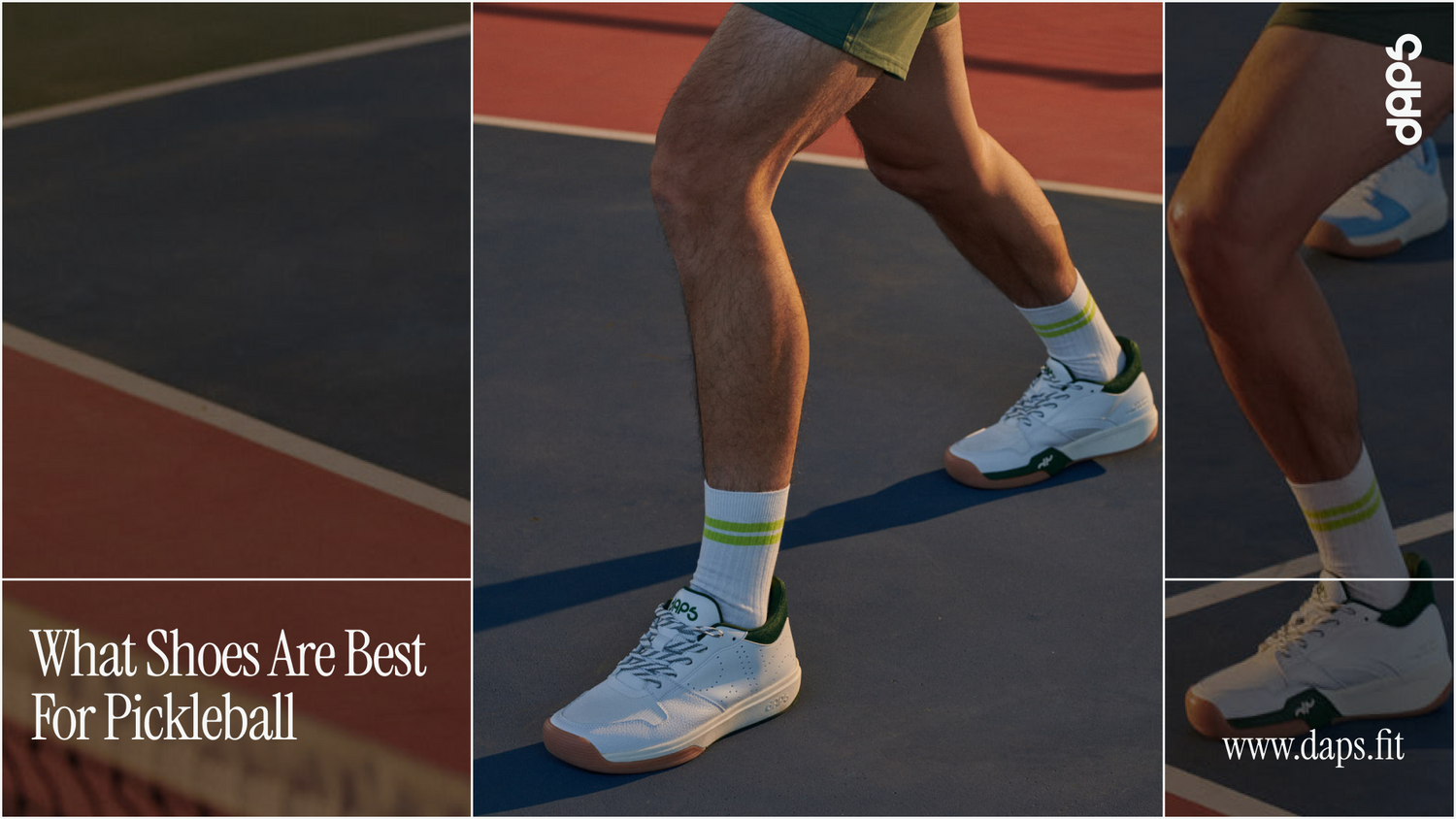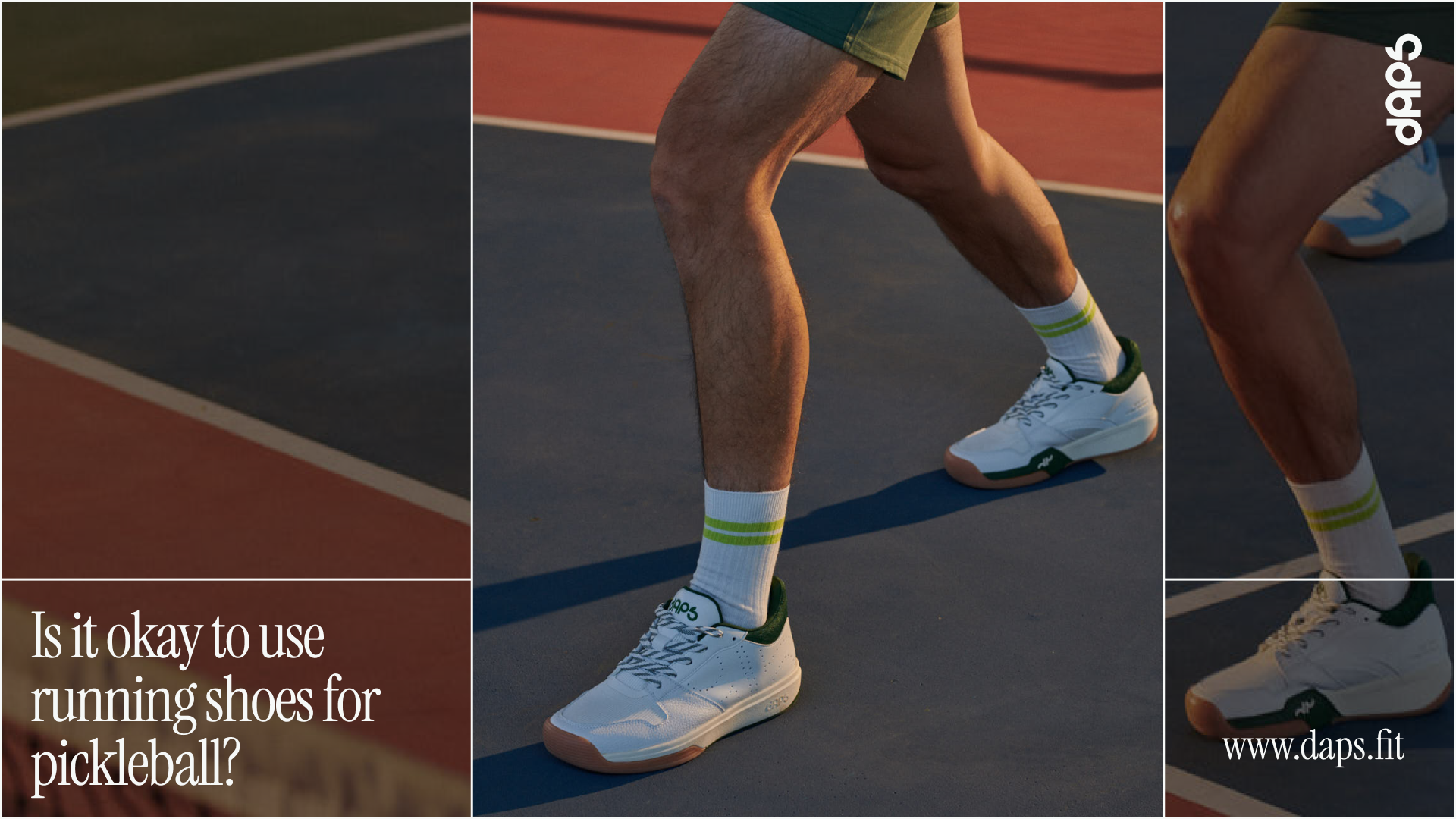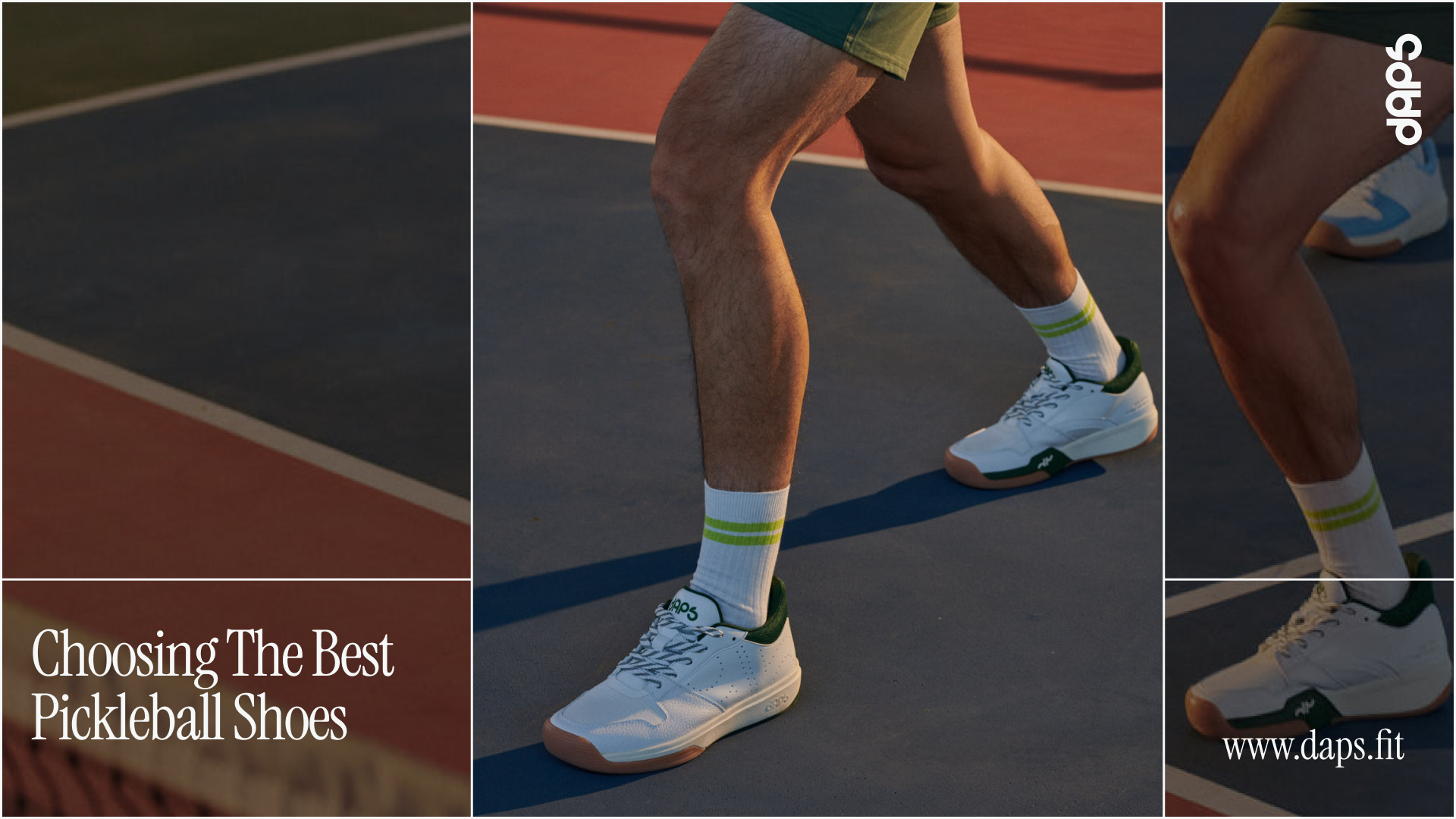If you’ve been hitting the court more often, you’ve probably realized something: your feet are doing a lot more work than you expected. Pickleball is quick, sharp, and—let’s be real—a little brutal on your joints if you’re not wearing the right footwear.
So let’s answer the question once and for all: Which shoes are best for pickleball?
We’re not going to throw a bunch of brands at you. We’re going to help you understand the type of shoe that actually supports your game—based on how pickleball is played, how the body moves on the court, and how to prevent injuries while boosting performance.
Let’s break it down.
Why You Shouldn’t Wear Just Any Athletic Shoe
Not all sneakers are created equal.
Running shoes? Built for forward motion.
Walking shoes? Built for slow, predictable pace.
Cross-trainers? A jack-of-all-trades, master of none.
Pickleball demands something different: multi-directional movement, traction, support, and quick responsiveness. That’s why your go-to joggers just aren’t up for the job.
The Key Features of the Best Pickleball Shoes
Here’s what the best shoes for pickleball all have in common:
✅ 1. Lateral Support
You’re not running straight down a track—you’re moving side to side, lunging at sharp angles, and pivoting fast.
Shoes built for pickleball should include:
-
Reinforced sidewalls or outriggers
-
A wide base for ankle stability
-
A snug midfoot fit to reduce slippage
Why it matters: Proper lateral support prevents rolled ankles and helps you stay planted on fast lateral shifts.
✅ 2. Court-Ready Traction
Whether you play indoors or outdoors, pickleball is played on hard, flat surfaces. The best shoes feature outsoles with:
-
Non-marking rubber
-
Herringbone or hybrid tread patterns
-
Edge grip for pivots and slides
Why it matters: Slippery soles or too-soft foam bottoms can cause falls and slow down your recovery between shots.
✅ 3. Low-to-Mid Heel Drop
Heel drop refers to the difference in height between the heel and the forefoot. Running shoes often have an elevated heel (8–12mm).
Pickleball shoes should stay closer to 4–7mm to promote better balance and agility.
Why it matters: Lower heel drop keeps you on the balls of your feet—ideal for fast reaction times and balance at the kitchen line.
✅ 4. Targeted Cushioning
Too much squish = instability.
Too little = sore feet and aching joints.
The best pickleball shoes find a balance, often using:
-
Responsive midsoles (like ETPU or EVA foam)
-
Shock-absorbing insoles for heel and arch support
-
Firm cushioning under the forefoot for explosive push-offs
Why it matters: Targeted support keeps you comfortable without sacrificing speed or control.
✅ 5. Durability in High-Wear Zones
Pickleball puts stress on very specific parts of your shoe—especially around the toes and medial (inner) side of your foot.
The best shoes will include:
-
Toe drag protection (reinforced toe caps)
-
Abrasion-resistant overlays
-
Stitch reinforcement or thermoplastic guards
Why it matters: If your shoes wear out in 4 weeks, they’re not pickleball shoes—they’re wishful thinking.
✅ 6. Breathable, Locked-In Fit
Pickleball isn’t just about movement—it’s about movement that lasts. When your feet overheat or slide around in your shoes, you lose confidence and control.
Look for:
-
Breathable mesh or knit uppers
-
Secure lacing systems (with heel lock or midfoot wrap)
-
A fit that hugs without squeezing
Why it matters: The right fit keeps you stable, reduces fatigue, and prevents hot spots and blisters during long play sessions.
Indoor vs. Outdoor Pickleball Shoes — What’s the Difference?
This question pops up a lot. And the answer comes down to traction and durability.
|
Indoor Court Shoes |
Outdoor Court Shoes |
|---|---|
|
Softer rubber outsole for gym floors |
Tougher rubber for asphalt or concrete |
|
Grippier tread for smooth surfaces |
Durable, patterned tread for gritty courts |
|
Often slightly lighter |
Often slightly more durable |
If you play on both types of courts, look for hybrid models that balance grip and durability across surfaces.
How Do Pickleball Shoes Compare to Tennis or Volleyball Shoes?
Pickleball shoes sit at the crossroads of tennis and volleyball shoes—but they’re becoming their own category for good reason.
|
Feature |
Tennis Shoes |
Volleyball Shoes |
Pickleball Shoes |
|---|---|---|---|
|
Lateral support |
✅ High |
✅ Moderate |
✅ High |
|
Cushioning |
Moderate |
High |
Balanced |
|
Traction |
Outdoor-specific |
Indoor-specific |
Surface-specific or hybrid |
|
Weight |
Medium |
Light |
Light to medium |
|
Design for quick resets |
❌ Less focused |
✅ Strong |
✅ Optimized |
Takeaway: Tennis and volleyball shoes are close—but the best pickleball shoes are tailored exactly to how the game is played.
Can You Just Use What You Already Have?
Here’s the deal: if you’re brand new to the sport and just trying it out, it’s okay to start with whatever you have—but recognize that it’s a temporary solution.
If you’re playing even semi-regularly (twice a week or more), your footwear directly affects your:
-
Performance
-
Longevity
-
Injury risk
-
Overall enjoyment of the game
Upgrading to court-specific footwear isn’t a luxury—it’s part of playing smart.
What to Avoid When Shopping for Pickleball Shoes
✅ Don’t be fooled by the “pickleball” label on a repurposed tennis shoe.
✅ Don’t choose shoes based on looks alone—check for features that match real movement patterns.
✅ Avoid running shoes, walking shoes, or lifestyle sneakers—even if they’re labeled “sporty.”
The best pickleball shoes don’t just look athletic—they’re built for impact zones, foot movement, and traction where you need it.
What Type of Shoe is Best for Pickleball?
|
Must-Have Feature |
Why It Matters |
|---|---|
|
Lateral support |
Keeps you stable and injury-free |
|
Court-specific traction |
Prevents slipping, improves recovery |
|
Responsive cushioning |
Absorbs shock without feeling soft |
|
Reinforced toe/medial zones |
Handles wear and drag |
|
Breathable upper + secure fit |
Reduces fatigue and hot spots |
|
Surface-matched outsole |
Matches indoor/outdoor needs |
Final Thoughts
Pickleball is exploding in popularity—and the footwear industry is finally catching up. The best shoes for pickleball aren’t about big logos or influencer deals. They’re about performance, protection, and feeling unstoppable every time you step on court.
As the sport evolves, so should your gear.
So before you lace up those old trainers again, ask yourself:
“Is this shoe built for the way I actually move on the court?”
If the answer’s no—it’s time to level up.



Leave a comment
This site is protected by hCaptcha and the hCaptcha Privacy Policy and Terms of Service apply.